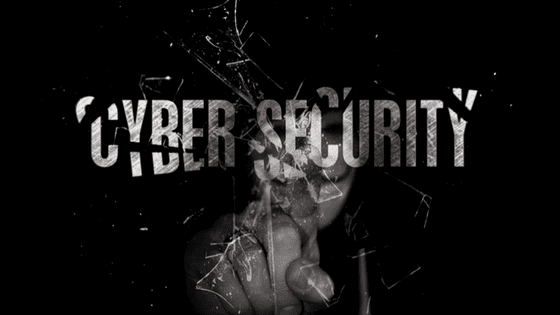Business security isn’t just about protecting people and your assets from physical threats. It’s also about making sure that your business is safeguarded from cyber threats.

Remember, small businesses are just as vulnerable as big operations.
Research suggests that over 20% of small businesses have been victims of cyber attacks with 60% of those affected shutting their doors within six months of the breach*. Of course, that’s the worst case scenario but there are plenty of other serious consequences that can result from a cyber security breach including financial losses as a result of the disruption to normal business activities, reputational damage, legal repercussions if customers’ personal details are compromised and the cost of removing the threat from your network.
Cyber attacks can come from an external source or from within your own company, so what steps can a business take to protect itself?
The reality is that data security threats are on the rise and investing in cybersecurity has become a business imperative for all businesses – large and small. Whilst nothing is foolproof, there are things you can put in place to help safeguard your operation.
It’s important to understand that cybersecurity needs to be seen in the context of business security as a whole. Physically protecting your premises from unauthorised access is crucial and that’s where things like having a reliable security alarm, perimeter protection, lighting, strong locking systems, controlled entry to sensitive areas and so on are so important. If there are weak spots or vulnerabilities in your business’s physical security, your cyber safety will be compromised.
Everyone in the business needs to be security conscious – not only in terms of understanding the importance of keeping safe from a physical perspective, but also in terms of knowing how crucial cyber safety is to the future of the business.
From a cyber security perspective, there are some key cybersafety tools and processes:
Do a risk analysis. Identify and evaluate any potential risks and draw up a comprehensive strategy and policy to mitigate these.
Your cyber security policy should include guidelines on passwords, email protocols, locking and storing of devices and computers, handling of removable devices, acceptable use of social media, data back-ups and reporting procedures of perceived breaches.
Train your employees. Educate them on why their participation in implementing the strategy and being vigilant at all times is so important.
Always use firewalls. Firewalls play a key gatekeeper role for all incoming and outgoing network traffic and should be kept updated against new threats, viruses etc.
Install quality antivirus software and keep it updated.
Stay informed. Know about the latest cyber security risks and make sure your systems are up-to-date.
Effective business security requires a multi-pronged, unified approach involving people, processes and technology. And whether we’re talking cyber security or physical security, your best bet is to get advice and assistance from professionals who can use their experience and their expertise to protect your business, your assets, your data and intellectual capital and your people.
If it’s business security in Perth that you’re after, get in touch with Crown Security. They’ve been at the forefront of commercial security since 1994 specialising in alarm systems, CCTV surveillance systems, access control and integrated technology solutions.
* https://www.kaspersky.com.au/resource-center/preemptive-safety/small-business-cyber-security




















